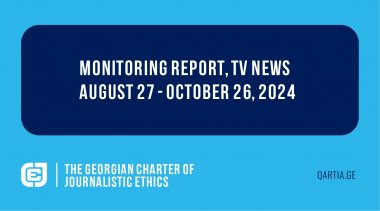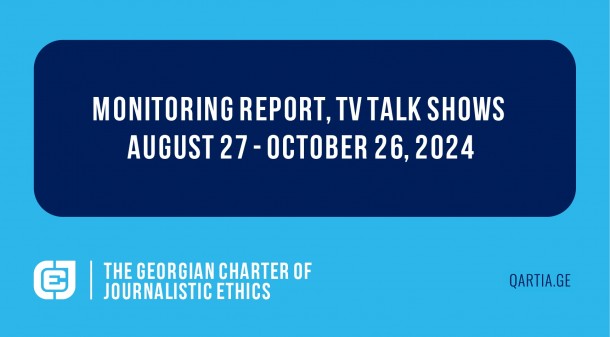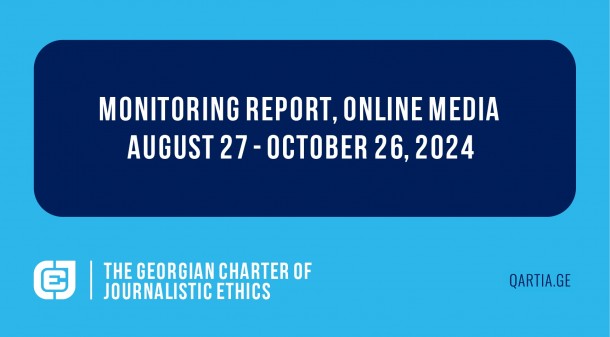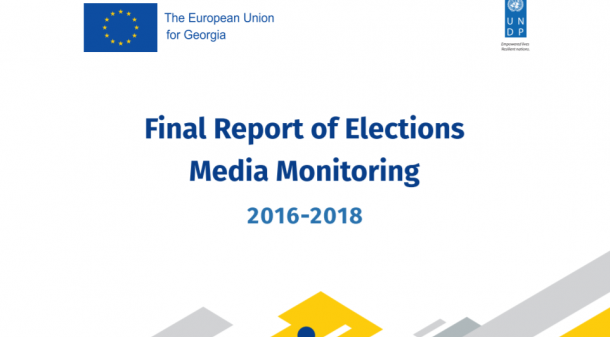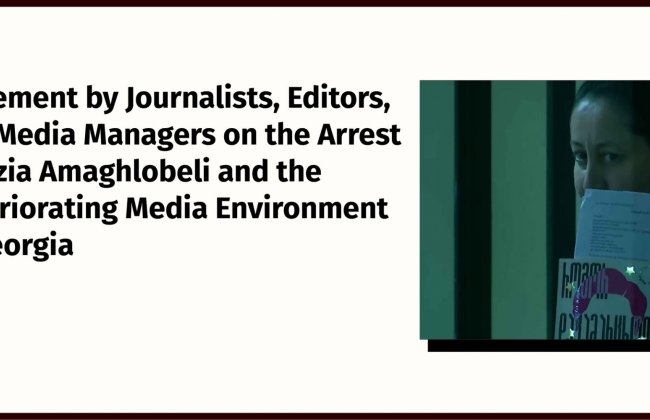The Georgian Charter of Journalistic Ethics, with EU support, under the “Supporting Free and Fair Elections Cycle in Georgia” project, led by the International Society of Fair Elections and Democracy (ISFED), examined media coverage of election processes and electoral subjects, through qualitative research method.
The Charter observed the main news programs aired on the following 10 television channels from August 27 to October 26: two public broadcasters – First Channel and Adjara TV – and eight national broadcasters: Mtavari Arkhi, TV Pirveli, Formula, Kavkasia, Palitra News, Rustavi 2, Imedi, and POSTV.
Key Findings
· The monitoring of media coverage during the pre-election period of the 2024 parliamentary elections showed that the pre-election media environment was pluralistic but highly polarized.
· Due to political polarization, national broadcasters often violated the principles of fair and balanced coverage during the pre-election period.
· Some television channels demonstrated editorial bias in favor of the ruling party, while others were biased towards the opposition.
· As a result of political bias in television media, voters were unable to receive objective information that would help them make informed choices.
· Across all channels, the political party that received the most airtime was the Georgian Dream.
· During the pre-election period, First Channel of the Public Broadcaster exhibited editorial bias favoring the government in its coverage of current socio-political events.
· In the pre-election period, “Moambe” provided a comfortable and favorable platform for the ruling political team to disseminate anti-Western views, as well as to promote homophobic messages and conspiracy theories.
· Adjara TV of the Public Broadcaster pursued a pro-government editorial policy.
· The news service of Imedi was a propaganda tool for the ruling party, Georgian Dream, during the pre-election period.
· Imedi openly declared its aim to prevent the United National Movement’s comeback in Georgia before the parliamentary elections.
· POSTV is an openly propagandistic, pro-government channel, and it stood out for its editorial bias in favor of the authorities.
· Both Imedi and POSTV consistently discredited the opposition and the president.
· Anti-Western narratives were frequently disseminated in news broadcasts on Imedi and POSTV.
· Rustavi 2 followed a pro-government editorial policy and acted as a propaganda tool for the ruling party during the pre-election period.
· Mtavari Arkhi displayed editorial bias in favor of the Coalition for Change.
· Formula exhibited an editorial policy biased toward the United National Movement.
· TV Pirveli demonstrated editorial bias in favor of the coalition Strong Georgia.
· Violations of professional ethics and instances of manipulation were frequent in television media. Cases of breaching due balance and disseminating unverified information were common.
· A significant problem in televised news remains the superficial coverage of events. In-depth analyses of topics important to the public are rarely found in broadcasts.
· News programs often contained offensive and unethical terminology, as well as instances of manipulation through video and text.
· Compared to previous years, the use of hate speech and discriminatory language in televised news has increased.
For press release click here
For full report click here

